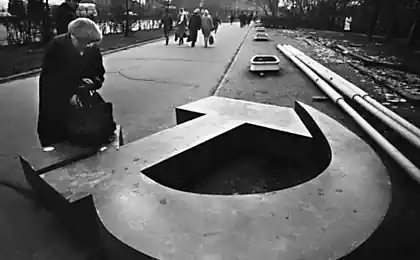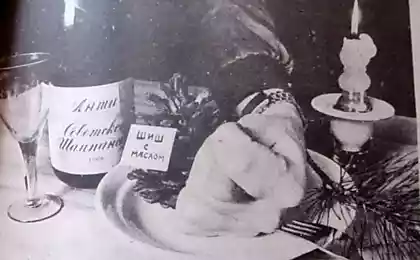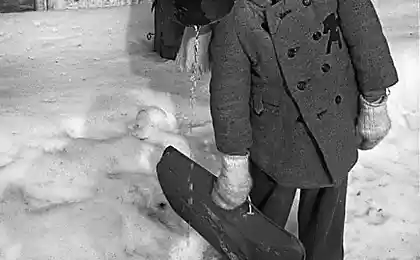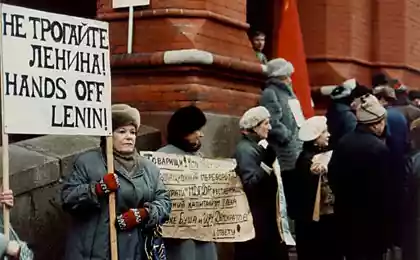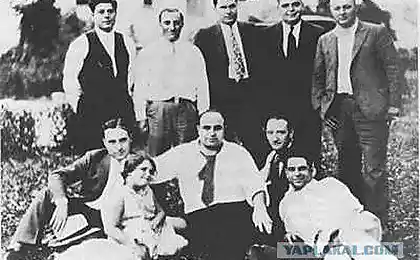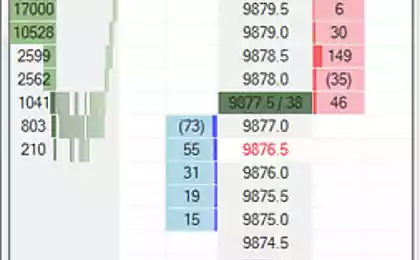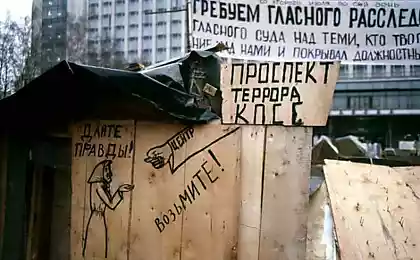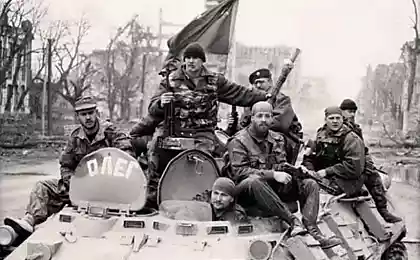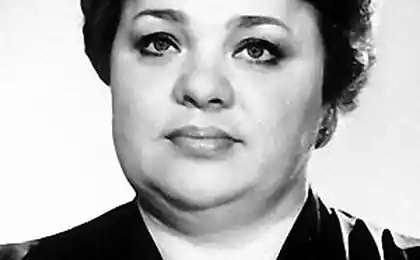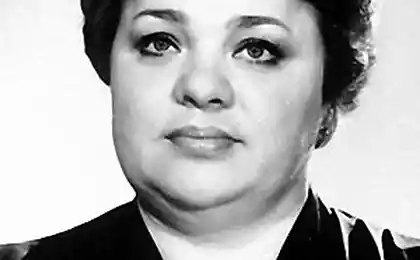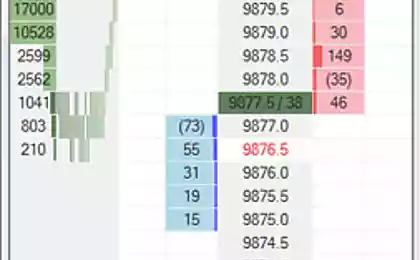707
Facts about the April jump in prices in 1991
April 2, 1991 the inhabitants of the Soviet Union lost their last illusions about the fact that "life will become better, life has become merrier." Prices rose by an average of three times. It was a shock. The country was rolling to a humanitarian catastrophe.
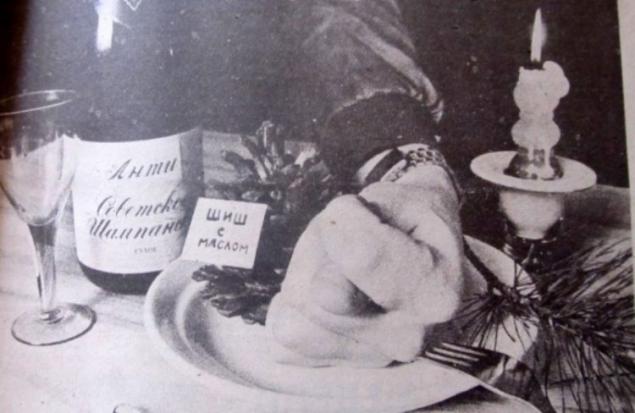
The great deception
April 2, 1991 is popularly called "Pavlov day" in honor of the most unpopular in Russian history, Prime Minister Valentin Pavlov.
The very Pavlov, who on January 22 of that year, held a confiscatory currency reform.
The very Pavlov, who two weeks before the decree of Soviet President Mikhail Gorbachev's reform in the Supreme Council urged that no reform will not be that such reforms are preparing for years and savings of citizens is not in danger.
It turned out - threatening. Pavlovskaya reform exempts from the turnover of the largest banknotes in denominations of 50 and 100 rubles. Citizens within three (!) Days (January 23-25) could exchange them into smaller bills, but in an amount not exceeding 1,000 rubles. All other savings burned. The Ministry of Finance was planning to withdraw from circulation 81 billion rubles.
It is significant that the most affected by the reform of ordinary citizens. Those that are richer on the reform known in advance. Who pooborotistee - managed to change their thousands by taxi or by other speculative operations. The night of 22 to 23 January 1991 was the night "big wash". People just are far from market trends and years kopivshie money for a car or a cottage, left with nothing.
The money allowed the wind, they are discarded and burned.
The reform has failed - to withdraw was only 14 billion. This led to what happened April 2 - to the collapse of the last hopes in the economic stability of the once mighty country. As a result - the disappearance of the state itself.
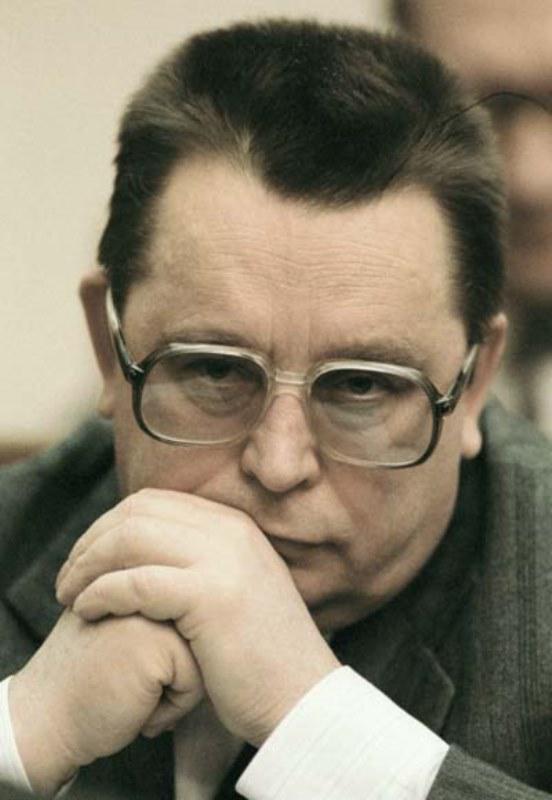
Who had time - and he ate
By April 1991, the economic system of the USSR was virtually destroyed. For the first time since the 40s in the Soviet Union there were kilometer queue for bread. Shops and market stalls emptied at an incredible rate. People reasonable to believe that tomorrow may be lost all the goods, so bought the last remnants. The price of bread has increased by 3 times, a kilogram of beef - 4 times, a liter of milk - 3, 5 times. With such an incredible level of inflation wages increased only by 20-30%. Countermeasure government were one-time compensation in the amount of 60 rubles. In this situation, the measure APB looked just mockery.
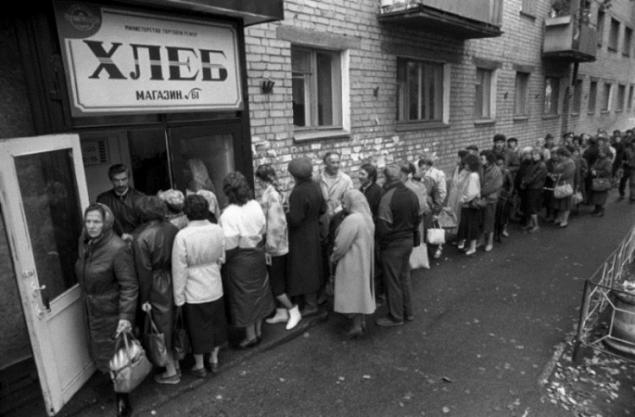
Although ...
For all the apparent injustices must be recognized that the price increase on April 2 was a necessary measure. The country is faced with unprecedented budget deficit of 31 billion rubles, which is easily explained: the Republic ignored the requirements of the center and did not transfer the money to the state budget. According to the newspaper "Kommersant", the beginning of April 1991 the duty of the Union republics increased to 36 billion rubles. It is then extremely aggravated separatist sentiment.
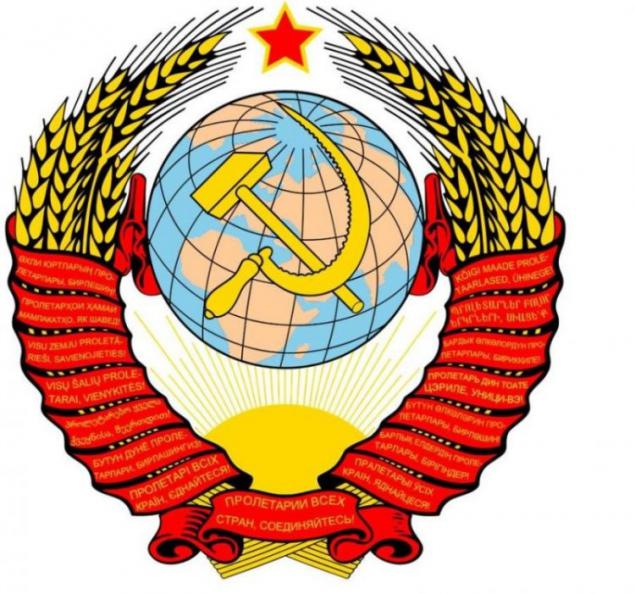
500 days
Were alternative Pavlovian reform that led to the April jump in prices? Obviously - it was. The most famous of them - Grigory Yavlinsky associates program "500 days". Economist Nikolai Shmelev, also offers a radical program of economic recovery, commented on the "500 days", "Grisha Yavlinsky and his boys picked up my ideas, but cocked the trying on," Do I look like Napoleon? "And planted that stupid program" 500 days. " Filling was correct, but it is clear to anyone that is not required 500 days, and 500 weeks, months or even 500. So the idea compromised from the beginning ».
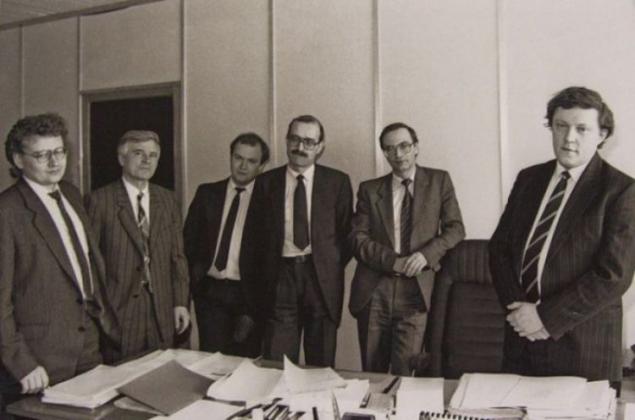
Foreigners will help us
In April 1991, the Soviet Union was on the brink of disaster. So much so that the Soviet Union begins to ask for humanitarian aid. The Soviet leadership, according to Yegor Gaidar's "Meta World begging for aid and loans." As part of humanitarian aid from Germany to the Soviet Union came to millions of army rations from the United States - flew "Bush legs". According to the same motive of Yegor Gaidar, "Give money, save!" Dominated in relations with the West, the union leadership throughout the whole 91-year. The mood of the people was the most gloomy - «sunk».
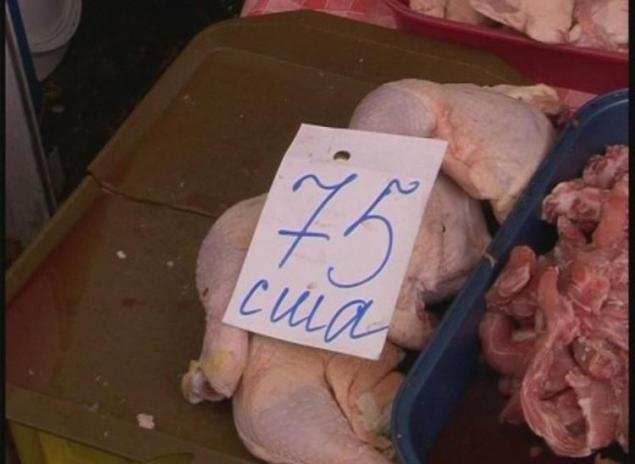
The people on strike
The April price hike was marked by major strikes, passed in many major cities of the USSR. Took to the streets millions of people. It has the usual miners' strikes have joined the strike intellectuals and workers.
It is worth mentioning that on 17 March, the Soviet Union held a referendum on the preservation of the Union, in which people voted "for", thereby giving the government a last chance to change the situation.
The trust, the Soviet leadership has neglected two weeks after the people's will.
Requirements strikers were not only economic, but also radical political. The people demanded the resignation of Gorbachev and ministers partization companies, recovery of private ownership of land, on the basis of multi-party elections.
The strike ended only after the government made concessions and agreed to transfer part of the jurisdiction of the republican enterprises with the termination of transfer of profit to the Union budget. After April 1991 the Soviet Union "went to pieces».
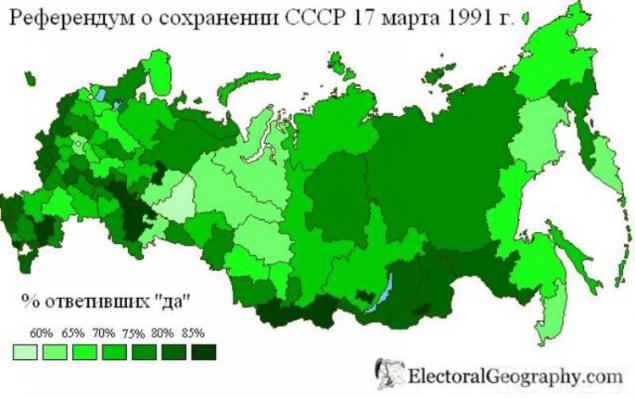
Belated rehabilitation
Ironically funeral Valentin Pavlov held on 2 April 2003, exactly 12 years after the famous jump in prices. In the last years of his life Pavlov repeatedly returned to the events of 1991. He said that he did not have time for a full financial reform that is already the September 1991 statistics showed very significant positive developments in the economy.
Valentin Pavlov was an opponent held in Russia, "Chubais privatization" and considered that this period of economic development of Russia can write crime novels. He saw clearly skewed in relation to income and financial obligations of the "new Russia", when incomes went to a small group of individuals and the obligations laid down on the shoulders of the state and its citizens. Pavlov, last and only Prime Minister of the Soviet Union, even expressed regret that in politics. He said that if he concentrated his efforts on the financial activity - would be the richest man in the country.
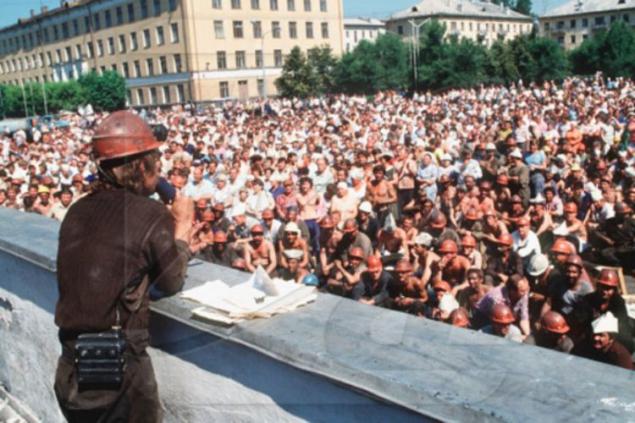

The great deception
April 2, 1991 is popularly called "Pavlov day" in honor of the most unpopular in Russian history, Prime Minister Valentin Pavlov.
The very Pavlov, who on January 22 of that year, held a confiscatory currency reform.
The very Pavlov, who two weeks before the decree of Soviet President Mikhail Gorbachev's reform in the Supreme Council urged that no reform will not be that such reforms are preparing for years and savings of citizens is not in danger.
It turned out - threatening. Pavlovskaya reform exempts from the turnover of the largest banknotes in denominations of 50 and 100 rubles. Citizens within three (!) Days (January 23-25) could exchange them into smaller bills, but in an amount not exceeding 1,000 rubles. All other savings burned. The Ministry of Finance was planning to withdraw from circulation 81 billion rubles.
It is significant that the most affected by the reform of ordinary citizens. Those that are richer on the reform known in advance. Who pooborotistee - managed to change their thousands by taxi or by other speculative operations. The night of 22 to 23 January 1991 was the night "big wash". People just are far from market trends and years kopivshie money for a car or a cottage, left with nothing.
The money allowed the wind, they are discarded and burned.
The reform has failed - to withdraw was only 14 billion. This led to what happened April 2 - to the collapse of the last hopes in the economic stability of the once mighty country. As a result - the disappearance of the state itself.

Who had time - and he ate
By April 1991, the economic system of the USSR was virtually destroyed. For the first time since the 40s in the Soviet Union there were kilometer queue for bread. Shops and market stalls emptied at an incredible rate. People reasonable to believe that tomorrow may be lost all the goods, so bought the last remnants. The price of bread has increased by 3 times, a kilogram of beef - 4 times, a liter of milk - 3, 5 times. With such an incredible level of inflation wages increased only by 20-30%. Countermeasure government were one-time compensation in the amount of 60 rubles. In this situation, the measure APB looked just mockery.

Although ...
For all the apparent injustices must be recognized that the price increase on April 2 was a necessary measure. The country is faced with unprecedented budget deficit of 31 billion rubles, which is easily explained: the Republic ignored the requirements of the center and did not transfer the money to the state budget. According to the newspaper "Kommersant", the beginning of April 1991 the duty of the Union republics increased to 36 billion rubles. It is then extremely aggravated separatist sentiment.

500 days
Were alternative Pavlovian reform that led to the April jump in prices? Obviously - it was. The most famous of them - Grigory Yavlinsky associates program "500 days". Economist Nikolai Shmelev, also offers a radical program of economic recovery, commented on the "500 days", "Grisha Yavlinsky and his boys picked up my ideas, but cocked the trying on," Do I look like Napoleon? "And planted that stupid program" 500 days. " Filling was correct, but it is clear to anyone that is not required 500 days, and 500 weeks, months or even 500. So the idea compromised from the beginning ».

Foreigners will help us
In April 1991, the Soviet Union was on the brink of disaster. So much so that the Soviet Union begins to ask for humanitarian aid. The Soviet leadership, according to Yegor Gaidar's "Meta World begging for aid and loans." As part of humanitarian aid from Germany to the Soviet Union came to millions of army rations from the United States - flew "Bush legs". According to the same motive of Yegor Gaidar, "Give money, save!" Dominated in relations with the West, the union leadership throughout the whole 91-year. The mood of the people was the most gloomy - «sunk».

The people on strike
The April price hike was marked by major strikes, passed in many major cities of the USSR. Took to the streets millions of people. It has the usual miners' strikes have joined the strike intellectuals and workers.
It is worth mentioning that on 17 March, the Soviet Union held a referendum on the preservation of the Union, in which people voted "for", thereby giving the government a last chance to change the situation.
The trust, the Soviet leadership has neglected two weeks after the people's will.
Requirements strikers were not only economic, but also radical political. The people demanded the resignation of Gorbachev and ministers partization companies, recovery of private ownership of land, on the basis of multi-party elections.
The strike ended only after the government made concessions and agreed to transfer part of the jurisdiction of the republican enterprises with the termination of transfer of profit to the Union budget. After April 1991 the Soviet Union "went to pieces».

Belated rehabilitation
Ironically funeral Valentin Pavlov held on 2 April 2003, exactly 12 years after the famous jump in prices. In the last years of his life Pavlov repeatedly returned to the events of 1991. He said that he did not have time for a full financial reform that is already the September 1991 statistics showed very significant positive developments in the economy.
Valentin Pavlov was an opponent held in Russia, "Chubais privatization" and considered that this period of economic development of Russia can write crime novels. He saw clearly skewed in relation to income and financial obligations of the "new Russia", when incomes went to a small group of individuals and the obligations laid down on the shoulders of the state and its citizens. Pavlov, last and only Prime Minister of the Soviet Union, even expressed regret that in politics. He said that if he concentrated his efforts on the financial activity - would be the richest man in the country.

